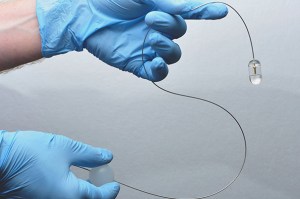Tag: Nature Medicine
-
Health
Gut-brain connection moves into MS territory
Using pre-clinical models for multiple sclerosis and samples from MS patients, a Harvard-affiliated team found evidence that changes in diet and gut flora may influence astrocytes in the brain, and, consequently, neurodegeneration, pointing to potential therapeutic targets.
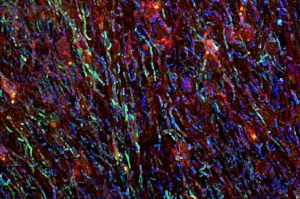
-
Health
Potential diabetes treatment advances
Researchers at MIT’s David H. Koch Institute for Integrative Cancer Research, in collaboration with scientists at the Harvard Stem Cell Institute and several other institutions, have developed an implantable device that in mice shielded insulin-producing beta cells from immune system attack for six months — a substantial proportion of life span.
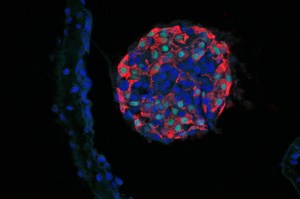
-
Science & Tech
Wiping out sepsis
A new device inspired by the human spleen and developed by a team at Harvard’s Wyss Institute for Biologically Inspired Engineering may radically transform the way doctors treat sepsis.
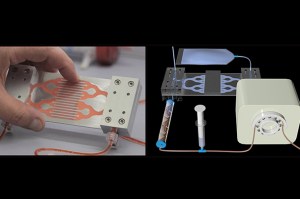
-
Health
Forward thinking on HIV
A research team led by Martin Nowak has developed a technique for modeling the effects of various HIV treatments and for predicting whether the treatments will cause the virus to develop resistance.

-
Health
Slowing neurodegeneration in Huntington’s
Harvard researchers have found a treatment that increases brain levels of an important regulatory enzyme may slow the loss of brain cells that characterizes Huntington’s disease and other neurodegenerative disorders.

-
Health
Slowing ALS symptom progression
Harvard researchers find that treatment with dexpramipexole — a novel drug believed to prevent dysfunction of mitochondria, the subcellular structures that provide most of a cell’s energy — appears to slow symptom progression in the neurodegenerative disease amyotrophic lateral sclerosis (ALS).

-
Health
Detecting heart-valve infection
A novel imaging probe developed by a Harvard-led team of investigators at Massachusetts General Hospital may make it possible to diagnose accurately a dangerous infection of the heart valves.
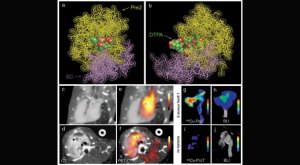
-
Science & Tech
A closer look at atherosclerosis
Researchers at the Wellman Center for Photomedicine at Massachusetts General Hospital (MGH) have developed a one-micrometer-resolution version of the intravascular imaging technology optical coherence tomography (OCT) that can reveal cellular and subcellular features of coronary artery disease.
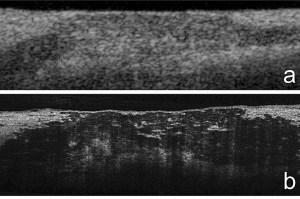
-
Health
Rare find
Researchers at Harvard Medical School and the Harvard School of Dental Medicine have found that by mimicking a rare genetic disorder in a dish they can rewind the internal clock of a mature cell and drive it back into an adult stem-cell stage.




